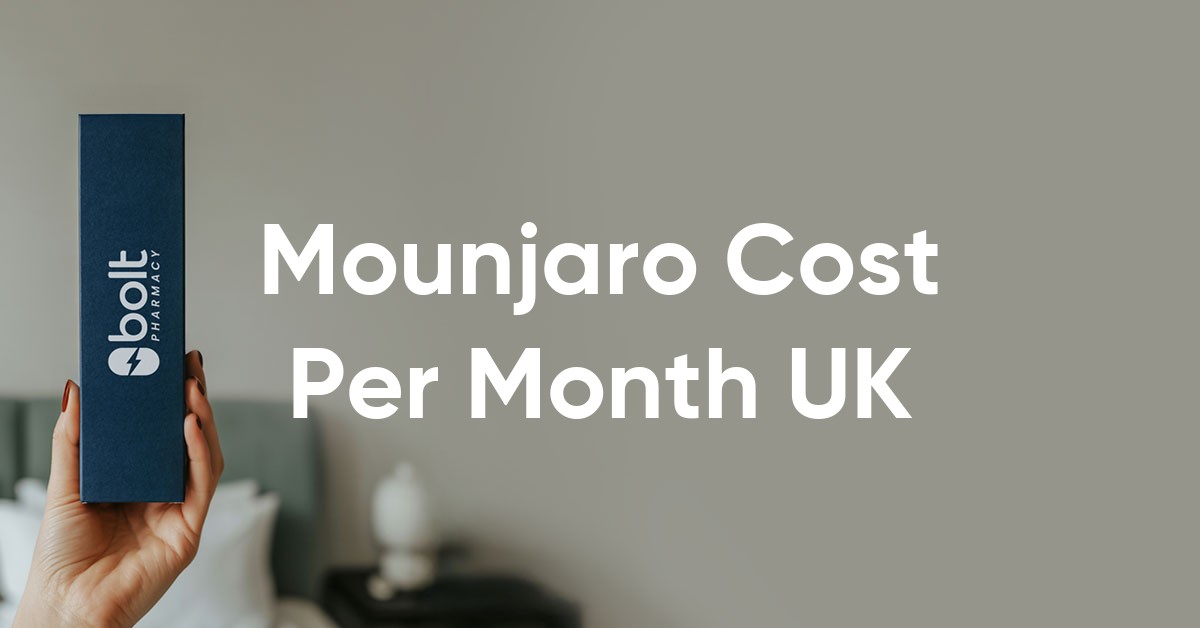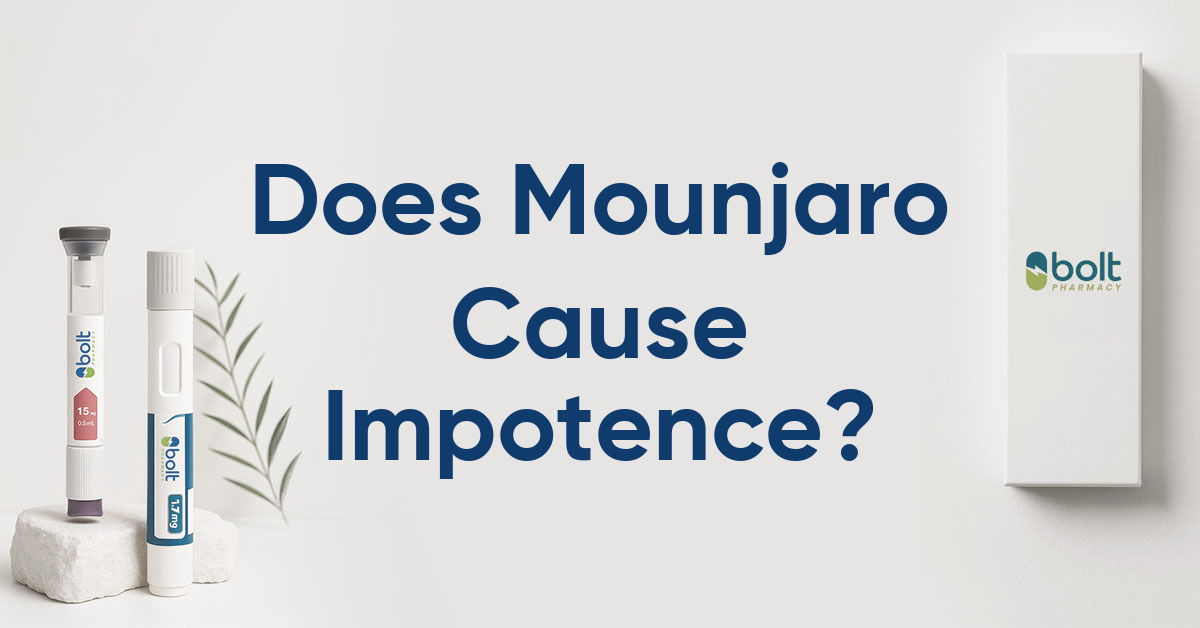Mounjaro (tirzepatide) is a once-weekly injectable medication licensed in the UK for treating type 2 diabetes in adults. Understanding the monthly cost of Mounjaro in the UK is essential for patients considering this treatment, whether through the NHS or private prescription. The cost varies significantly depending on your route of access, eligibility for NHS prescribing, and whether you require private consultations. This article provides comprehensive guidance on Mounjaro pricing, NHS availability criteria, private prescription options, and factors affecting your monthly expenditure, helping you make informed decisions about this diabetes treatment.
Summary: Mounjaro costs approximately £293 per month at NHS list price (four weekly doses), though NHS patients pay only the standard prescription charge of £9.90 in England or receive it free in Scotland, Wales, and Northern Ireland if eligible.
- Tirzepatide is a dual GIP/GLP-1 receptor agonist licensed for type 2 diabetes treatment in adults.
- NHS prescribing follows strict NICE TA924 criteria requiring specific BMI thresholds and combination therapy regimens.
- Private prescription costs include both medication (approximately £293 monthly) and consultation fees (£30–£150).
- Treatment continuation requires HbA1c reduction of at least 11 mmol/mol and 5% weight loss at 6 months.
- Common adverse effects include gastrointestinal symptoms; hypoglycaemia risk increases when combined with insulin or sulfonylureas.
- Patients should only obtain Mounjaro from registered UK pharmacies with valid prescriptions from GMC-registered prescribers.
Table of Contents
What Is Mounjaro and What Is It Used For?
Mounjaro (tirzepatide) is a once-weekly injectable medication licensed in the UK for the treatment of type 2 diabetes mellitus in adults. It belongs to a novel class of medicines known as dual glucose-dependent insulinotropic polypeptide (GIP) and glucagon-like peptide-1 (GLP-1) receptor agonists. By activating both GIP and GLP-1 receptors, Mounjaro enhances insulin secretion in response to elevated blood glucose, suppresses glucagon release, slows gastric emptying, and reduces appetite.
Mounjaro is indicated as an adjunct to diet and exercise to improve glycaemic control in adults with type 2 diabetes. It is available in several dose strengths (2.5 mg, 5 mg, 7.5 mg, 10 mg, 12.5 mg, and 15 mg), allowing for gradual dose escalation to optimise efficacy and tolerability. Clinical trials have demonstrated that tirzepatide significantly reduces HbA1c levels and is associated with substantial weight loss, which can be particularly beneficial for patients with type 2 diabetes who are overweight or obese.
The Medicines and Healthcare products Regulatory Agency (MHRA) granted marketing authorisation for Mounjaro in Great Britain in 2023. It should be noted that tirzepatide is also licensed for chronic weight management in Great Britain under the brand name Zepbound, though this is a separate product with different prescribing criteria.
Common adverse effects include gastrointestinal symptoms such as nausea, vomiting, diarrhoea, and constipation, which are typically mild to moderate and tend to diminish over time. Important safety considerations include:
-
Risk of hypoglycaemia when used with insulin or sulfonylureas (dose reduction of these medications may be needed)
-
Potential worsening of diabetic retinopathy, particularly with rapid improvement in blood glucose control
-
Risk of acute gallbladder disease
-
Possible dehydration and acute kidney injury from severe gastrointestinal effects
-
Reduced oral contraceptive effectiveness during initiation and dose increases (additional contraception recommended for 4 weeks after starting and after each dose increase)
-
Contraindication in pregnancy and breastfeeding (effective contraception advised during treatment)
Patients should be counselled on recognising signs of pancreatitis (severe abdominal pain) and advised to seek urgent medical attention if these occur. Any suspected side effects should be reported via the MHRA Yellow Card scheme (yellowcard.mhra.gov.uk).

How Much Does Mounjaro Cost Per Month in the UK?
The monthly cost of Mounjaro in the UK varies depending on whether it is obtained via the NHS or through private prescription. According to the British National Formulary (BNF), the NHS list price for Mounjaro is approximately £73.25 per single-dose pre-filled pen. A standard pack contains four single-dose pens (one month's supply when administered once weekly), making the NHS list price approximately £293 per month. It's important to note that the NHS list price is typically the same across all dose strengths.
For NHS patients in England, the cost is the standard NHS prescription charge per item (currently £9.90 per prescription), unless the patient is exempt from prescription charges. Prescriptions are free for all patients in Scotland, Wales, and Northern Ireland.
For patients accessing Mounjaro through private prescription, the total monthly cost typically includes both the medication itself and the prescriber's consultation fee. Private consultation fees can range from £30 to £100 or more, depending on the provider and whether the consultation is conducted in person or online. Some private clinics and telemedicine services offer package deals that bundle consultations with medication supply, which may affect the overall monthly expenditure.
It is important to note that the NHS list price does not necessarily reflect what the NHS pays, as confidential discounts and patient access schemes are often negotiated between manufacturers and NHS England. These arrangements can significantly reduce the effective cost to the health service, but they do not directly affect the price paid by private patients.
Patients should be aware that the cost of Mounjaro represents a significant ongoing financial commitment, particularly if treatment is required long-term. Those considering private treatment should budget for both the medication and associated healthcare professional fees. Additionally, some private health insurance policies may cover part or all of the cost of Mounjaro if it is prescribed for type 2 diabetes, though coverage varies widely between insurers and individual policies. Patients are advised to check their policy terms carefully and seek pre-authorisation where necessary.
NHS Availability and Prescription Criteria for Mounjaro
Mounjaro is available on the NHS in England, Scotland, Wales, and Northern Ireland, but access is subject to strict eligibility criteria aligned with NICE guidance and local formulary decisions. NICE Technology Appraisal 924 (TA924) provides the framework for NHS prescribing of tirzepatide.
NICE TA924 recommends tirzepatide as a treatment option for adults with type 2 diabetes only if:
-
It is used as part of a triple therapy regimen with metformin and a sulfonylurea (or metformin and a thiazolidinedione, or metformin and a sodium–glucose cotransporter 2 [SGLT2] inhibitor) for people with type 2 diabetes and a body mass index (BMI) of at least 35 kg/m² (adjusted accordingly for people from Black, Asian and other minority ethnic groups), and specific psychological or other medical problems associated with obesity, or a BMI below 35 kg/m² and for whom insulin therapy would have significant occupational implications, or weight loss would benefit other significant obesity-related comorbidities
-
It is used as part of a dual therapy regimen with metformin for people with type 2 diabetes who cannot use sulfonylureas
-
It is used as part of a dual therapy regimen with a sulfonylurea for people with type 2 diabetes who cannot use metformin
Importantly, NICE specifies that treatment should only be continued if there is a beneficial metabolic response, defined as a reduction in HbA1c of at least 11 mmol/mol (1.0%) and a weight loss of at least 5% of initial body weight after 6 months of treatment.
NHS prescription of Mounjaro is generally initiated by specialists in diabetes or endocrinology, though ongoing prescribing may be transferred to general practice once the patient is stable. Local integrated care boards (ICBs) may have additional restrictions or prioritisation criteria, meaning availability can vary by region.
Patients should be aware that there are currently national supply constraints affecting GLP-1 receptor agonists in the UK. NHS England and the Specialist Pharmacy Service have issued guidance to prioritise people with type 2 diabetes during these shortages, which may affect new prescribing decisions.
For those who do not meet NHS criteria, or where local formularies have not yet adopted Mounjaro, private prescription remains an alternative. However, patients should be aware that switching from private to NHS prescription later may not be straightforward if eligibility criteria are not met. It is advisable to have a clear discussion with your healthcare provider about long-term treatment plans and funding options before commencing therapy.
Private Prescription Costs and Where to Obtain Mounjaro
Patients who do not meet NHS eligibility criteria may opt for private prescription of Mounjaro. Several routes are available for obtaining private prescriptions in the UK, each with different cost structures and levels of clinical oversight.
Private GP clinics and endocrinology specialists offer face-to-face or virtual consultations, during which a full medical history and assessment are conducted. Initial consultation fees typically range from £50 to £150, with follow-up appointments costing £30 to £100. The prescriber will assess suitability, discuss potential risks and benefits, and arrange for the prescription to be dispensed via a registered pharmacy. This route provides continuity of care and comprehensive clinical monitoring, which is particularly important for patients with complex medical histories or those taking multiple medications.
Online telemedicine services have become increasingly popular for accessing diabetes medications. Providers such as specialist online clinics offer consultations via questionnaire or video call, with prescriptions issued electronically and medication delivered directly to the patient's home. While convenient, patients should ensure that any online provider is registered with the appropriate regulatory body: the Care Quality Commission (CQC) in England, Healthcare Improvement Scotland (HIS), Healthcare Inspectorate Wales (HIW), or the Regulation and Quality Improvement Authority (RQIA) in Northern Ireland. All prescribers should be GMC-registered doctors, and online pharmacies should be registered with the General Pharmaceutical Council (GPhC) and display the MHRA distance-selling logo.
High street pharmacies with private prescription services can also dispense Mounjaro, though patients will need to obtain a prescription from a registered prescriber first. Some pharmacies offer minor ailment and chronic disease management services, but the prescribing of Mounjaro typically requires a more comprehensive medical assessment than these services provide.
Important safety advice: Patients should avoid purchasing Mounjaro from unregulated online sources or overseas suppliers, as counterfeit or substandard products pose serious health risks. All medication should be obtained from a registered UK pharmacy with a valid prescription from a GMC-registered prescriber. Patients should inform their NHS GP about any privately prescribed medications to ensure comprehensive medical records and avoid potential drug interactions. If you experience any adverse effects or have concerns about your treatment, contact your prescribing clinician or GP promptly, and report suspected side effects via the MHRA Yellow Card scheme.
Factors That Affect the Monthly Cost of Mounjaro
Several factors influence the overall monthly cost of Mounjaro for individual patients, and understanding these can help in planning and budgeting for treatment.
Dose strength is a factor in treatment planning, though it may not significantly affect cost in all cases. Mounjaro is initiated at a low dose (2.5 mg weekly) and gradually escalated to a maintenance dose, which may range from 5 mg to 15 mg weekly depending on individual response and tolerability. For NHS list prices, the cost is typically the same across all dose strengths, but private providers may have different pricing structures. Patients should check specific pricing with their provider.
Prescriber and consultation fees vary widely depending on the type of service used. Traditional private clinics with face-to-face consultations tend to charge more than online telemedicine services, but may offer more comprehensive clinical oversight and continuity of care. Some providers include follow-up consultations in a bundled monthly fee, while others charge separately for each appointment. Patients should clarify the fee structure before commencing treatment, including any subscription terms, cooling-off periods, or minimum contract lengths.
Pharmacy and dispensing fees can also vary. Some online services include delivery in their quoted price, while others charge separately. High street pharmacies may have different pricing structures, and it is worth comparing costs between providers. Additional costs may include dispensing fees, delivery charges, or administrative fees, which should be factored into the total monthly budget.
Insurance coverage is another important consideration. Some private health insurance policies may cover Mounjaro if it is prescribed for type 2 diabetes as a licensed indication, but coverage for weight management is less common. Patients should review their policy documents carefully and contact their insurer to confirm coverage, exclusions, and any pre-authorisation requirements in writing before commencing treatment.
Duration of treatment also affects overall cost. Mounjaro is typically prescribed as a long-term treatment, and patients should budget for ongoing monthly expenses. Treatment continuation should be based on clinical response, with reference to the NICE criteria of achieving both HbA1c reduction and weight loss targets at 6 months. If cost becomes prohibitive, discuss alternative treatment options with your prescriber rather than stopping abruptly, as this may have adverse metabolic consequences.
Frequently Asked Questions
How much does Mounjaro cost on the NHS in England?
NHS patients in England pay the standard prescription charge of £9.90 per item for Mounjaro, or receive it free if exempt from prescription charges. The NHS list price is approximately £293 per month, but this is covered by the NHS for eligible patients.
Can I get Mounjaro privately if I don't meet NHS criteria?
Yes, Mounjaro is available through private prescription from registered clinics and online telemedicine services. Total monthly costs typically include medication (approximately £293) plus consultation fees ranging from £30 to £150, depending on the provider.
What are the NHS eligibility criteria for Mounjaro?
NICE TA924 recommends Mounjaro for adults with type 2 diabetes as part of dual or triple therapy with specific combinations including metformin, typically requiring BMI ≥35 kg/m² with obesity-related complications or specific occupational considerations. Treatment continues only if HbA1c reduces by at least 11 mmol/mol and weight decreases by at least 5% after 6 months.
The health-related content published on this site is based on credible scientific sources and is periodically reviewed to ensure accuracy and relevance. Although we aim to reflect the most current medical knowledge, the material is meant for general education and awareness only.
The information on this site is not a substitute for professional medical advice. For any health concerns, please speak with a qualified medical professional. By using this information, you acknowledge responsibility for any decisions made and understand we are not liable for any consequences that may result.
Heading 1
Heading 2
Heading 3
Heading 4
Heading 5
Heading 6
Lorem ipsum dolor sit amet, consectetur adipiscing elit, sed do eiusmod tempor incididunt ut labore et dolore magna aliqua. Ut enim ad minim veniam, quis nostrud exercitation ullamco laboris nisi ut aliquip ex ea commodo consequat. Duis aute irure dolor in reprehenderit in voluptate velit esse cillum dolore eu fugiat nulla pariatur.
Block quote
Ordered list
- Item 1
- Item 2
- Item 3
Unordered list
- Item A
- Item B
- Item C
Bold text
Emphasis
Superscript
Subscript












